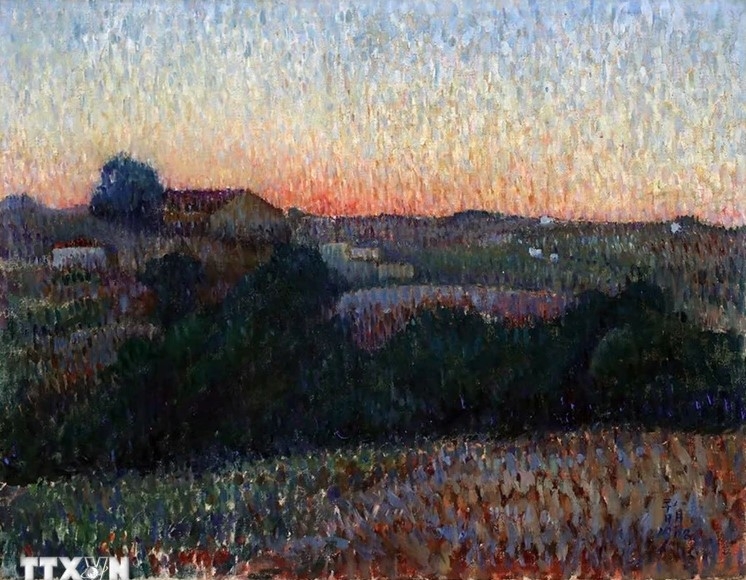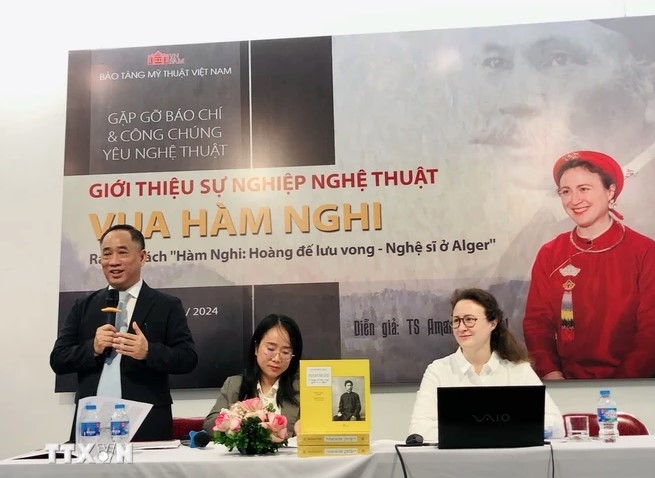Painting by King Ham Nghi introduced to public
Culture - Ngày đăng : 18:16, 12/11/2024

Upon addressing the event, Nguyen Anh Minh, director of the Vietnam National Fine Arts Museum, revealed that the painting was presented by Amandine Dabat, who has a PhD in art history and is a fifth-generation descendant of King Ham Nghi.
The director stressed that the work not only serves to enrich the museum’s collection, but is also a precious source of reference for researchers of Vietnamese fine arts in the late 19th century and the early 20th century.
In response, Dabat shared that the oil painting was created back in 1908 and depicts the countryside landscape near his home in Algiers. In 1926, the work was given that title and signed Tu Xuan and put on display at the Mantelet-Colette Weil gallery in Paris.
The king used the pseudonym Tu Xuan as it was his nickname when he was small, with this name being used for his entire life.
She added that the painting is one of the important works produced by King Ham Nghi and is considered a wonderful illustration of his painting studies.

Also at the ceremony, the book titled “Ham Nghi – Exiled Emperor, Artist in Algeria” compiled by Dr. Amandine Dabat was also introduced to the public.
The 500-page volume book tells the dual identity of the emperor as both a patriot and an artist during his exile in France and Algeria.
Ham Nghi (1871-1944), personal name Nguyen Phuc Minh, came to the throne in 1884 and was the eighth king of the Nguyen Dynasty (1802-1945).
After the Imperial City of Hue was lost in 1885, he departed the capital and issued the "Can Vuong” (Aid the King) edict, calling for patriots to rise up to regain independence and freedom. He was later detained by the French colonialists in 1888 and exiled to Algiers, the capital of Algeria, the following year.
He lived at a villa on El Biar hill, roughly 12km from Algiers, and still upheld the homeland’s traditions until his death in January, 1944.
